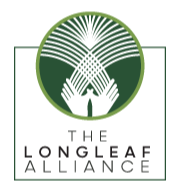Stories
How fall covey counts track the impact of habitat restoration
Surveys provide critical insight into management practices for northern bobwhite quail.
How hurricanes impact quail
STORMS SWEEPING THROUGH THE SOUTHEAST ARE A MIXED BAG FOR NORTHERN BOBWHITES
Lee County Middle School Hosts Northern Bobwhite Day
How a class of seventh-grade student is learning conservation through the bobwhite quail.
Quail habitat also protects threatened orchid species in Tennessee
Two rare species were recently found on working lands in Van Buren County
Crafting the perfect quail haven
SOUTH CAROLINA LANDOWNER’S MISSION TO RESTORE NORTHERN BOBWHITE QUAIL
Pollinator plantings benefit the birds and the bees
How implementing pollinator plantings can benefit both quail and pollinator species
The Softball Method
Determining the quality of upland habitat is one of the first steps in making better management decisions. One of the simplest ways to accomplish this is with the Softball Habitat Evaluation Technique (SHET) method. Simply put, it’s using a softball to mimic how quail use the landscape.
Innovative Conservation on the Sid Williams Ranch
“I’m addicted to taking a piece of land that’s worthless and turning it into something,” says Sid Williams, a rancher and landowner whose innovative conservation work in South Texas is making an outsized impact for bobwhite quail.
Kicking Out Cool Season Grasses
Replacing cool season grasses with native warm season grass can be a challenge. Foliar spraying is a cost-effective way to kickstart that conversion.
Meeting the Mestads
When Bruce and Marla Mestad bought thirty acres in northern Missouri, they didn’t expect to find that their fields were home to a seedbank for remnant prairie. With the help of Quail Forever and the USDA-NRCS, the Mestad’s have brought life back to their slice of prairie in north central Missouri.
Grazing Study Brings New Insights for Bobwhite Quail Management
The University of Tennessee, in cooperation with the USDA Workings Lands for Wildlife and the Kentucky Department of Fish and Wildlife, recently completed a four-year study that aimed to explore how the combination of planting native warm-season grasses and cattle grazing may benefit bobwhite quail and other upland birds.
It's All in the Soil
Do you know your dirt? A local USDA’s Natural Resource Conservation Service (NRCS) representative can help landowners get up to speed on what sort of ground they’re working with.
Restoring Upland Habitat in Arkansas' Grand Prairie
The Holmes farm, located in Prairie County Arkansas has been in the family for over 100 years and it sits in a quail focal area and right on the border of Arkansas’ Grand Prairie.
Building Your Own Conservation Team
Building habitat on private land isn’t easy. That’s why Barb Heyen has built a “conservation team,” to help transform 120 acres of her property in southern Illinois from low quality pasture to quail and monarch-focused habitat.
Three Ways to Combat Woody Encroachment
Woody encroachment is one of the primary threats to upland habitat and grazing land today.
Warm Season Native Grasses for Forage
With many states experiencing record drought, livestock producers may find themselves in a tight spot when trying to provide forage for their cattle. In the long run, native warm season grasses can offer drought resistant forage during the summer slump when many cool season grasses slow in production.


























